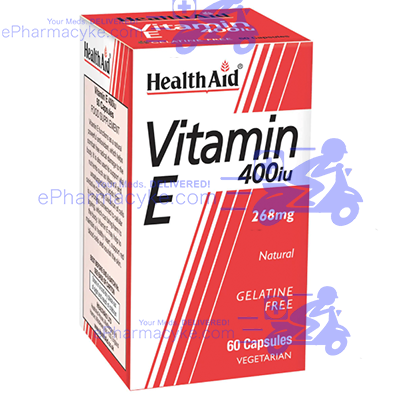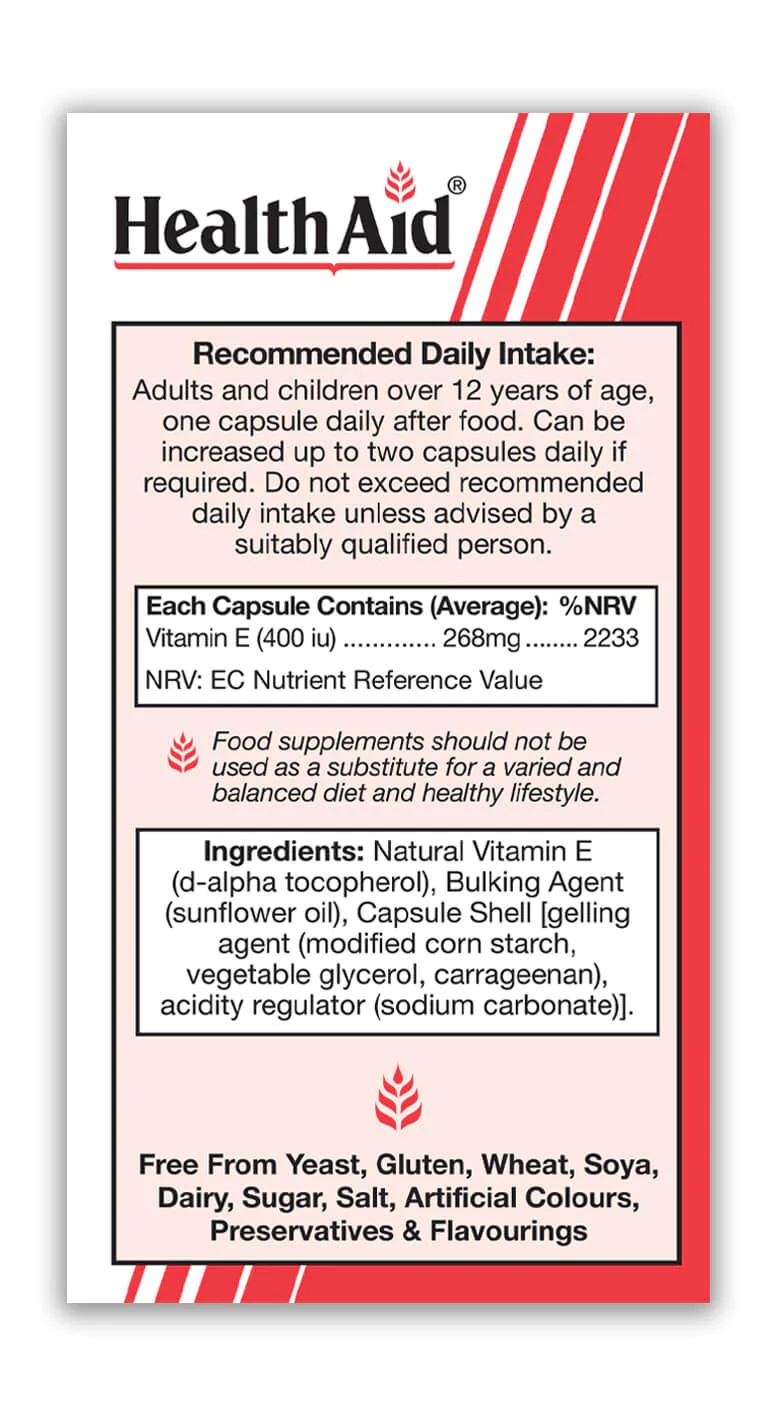Description
Vitamin E: An Essential Nutrient for Protecting Cells from Oxidative Stress
Vitamin E is a fat-soluble nutrient that is found naturally in some foods, added to others, and available as a dietary supplement. It is a powerful antioxidant that helps to protect cells from damage caused by free radicals.
Free radicals are unstable molecules that can damage cells and DNA. They are produced by the body as a byproduct of metabolism, but they can also be caused by environmental factors such as pollution, smoking, and exposure to radiation.
Oxidative stress occurs when there is an imbalance between the production of free radicals and the body’s ability to neutralize them. This can lead to a number of health problems, including heart disease, cancer, and neurodegenerative disorders.
HealthAid Vitamin E in Kenya helps to protect cells from oxidative stress by donating electrons to free radicals. This stabilizes the free radicals and prevents them from damaging cells.
In addition to its antioxidant properties, vitamin E also plays a role in a number of other important bodily functions, including:
- Immunity: Vitamin E helps to boost the immune system by protecting white blood cells from damage.
- Eye health: Vitamin E helps to protect the eyes from damage caused by free radicals.
- Skin health: Vitamin E helps to keep the skin looking young and healthy by protecting it from damage caused by the sun and pollution.
The recommended daily intake of vitamin E for adults is 15 mg for women and 22.5 mg for men. However, some people may need more vitamin E, such as those who smoke or are exposed to environmental pollutants.
If you are concerned that you may not be getting enough vitamin E, talk to your doctor. They can recommend a blood test to check your levels and advise you on whether you need to take a supplement.
HealthAid’s Vitamin E supplements in Kenya contain Vitamin E 400iu, which contributes to the protection of cells from oxidative stress.
These supplements are a convenient and effective way to get the vitamin E you need to support your overall health.
Here are some additional tips for reducing oxidative stress:
- Eat a healthy diet that includes plenty of fruits, vegetables, and whole grains.
- Get enough sleep.
- Exercise regularly.
- Manage stress levels.
- Avoid smoking and excessive alcohol consumption.
By following these tips, you can help to reduce oxidative stress and protect your health.




Reviews
There are no reviews yet.